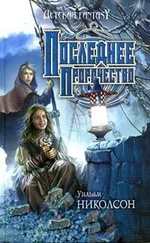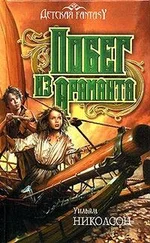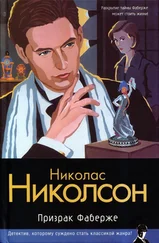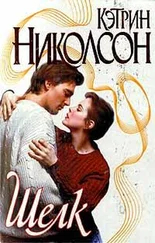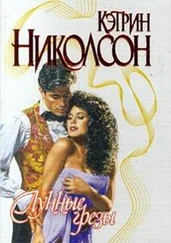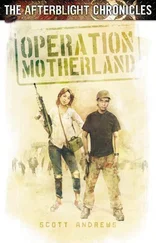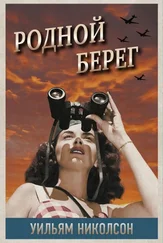‘Well, no one can ever be sure of anything with Nell. But I’m pretty sure. She tried it on me, but I just laughed.’
‘You?’
Larry drinks the brandy, draining the cup.
‘Look, old man,’ says Armitage, ‘I can see this has all rather hit you for six. Were you really serious about Nell?’
‘Yes,’ says Larry. ‘I think I was.’
‘I begin to see I’ve struck a bit of a wrong note.’
Larry can’t reply. He’s experiencing hot flushes of shame, beneath which far deeper griefs are waiting their turn.
‘I’m very fond of Nell too,’ says Armitage, trying clumsily to make amends. ‘I suppose I don’t mind her looking out for herself, because I do it too. We’re all getting by as best we can.’
‘But to lie to me.’ Larry is still scarcely able to believe it. ‘The first thing she ever said to me was, We tell each other the truth. She was always going on about the truth.’
‘That’s how it works, isn’t it?’ says Armitage. ‘Thieves lock up their valuables. Cheats tell you the rules of the game.’
‘Dear God,’ says Larry. ‘I feel so stupid.’
‘Did you have a good time with her?’
‘Yes,’ says Larry with a sigh.
‘Nothing stupid about that.’
Larry shakes his head, and looks round the room. There are all Armitage’s works. There are the two sketches of Nell.
‘You see more clearly than me, Tony,’ he says. ‘That’s why you’re a better artist.’
‘Oh, come on. Don’t start doing yourself down.’
‘No, it’s true. People talk about talent as if it’s a gift of the gods, like being beautiful. But I think it’s just as much to do with character. You’ve got the right character, Tony, and I haven’t. You see clearly, and you believe in yourself. You’re right, you will be one of the greats.’
‘And you too, Larry. Why not?’
Larry turns from the power of the paintings to the boy who has painted them.
‘You’ve seen my work,’ he says. ‘You know I’ll never be like you.’
‘Why shouldn’t you be?’ says Armitage. But Larry sees it in his eyes. He’s not Nell. He can’t look you in the face and lie.
‘Thanks for the brandy,’ Larry says. ‘And thanks for the home truths. Not much fun, but I needed to know. Now I’m going to go off and sort myself out.’
Armitage sees him down to the street. Outside the street lights have gone off, and the only light on the icy pavements is the soft spill from curtained windows. Larry walks back to his room, oblivious to the cold. He’s ashamed, and hurt, and angry, and lost.
When he gets back to his room he collects up all his paintings and bundles them in a blanket from his bed. There are over thirty works, mostly quite small, but one or two are an awkward size. He carries the bundle out into the street, and up the Grove to Church Street. He has some dim notion of walking all the way to the river, but a cab passes, and he hails it. The cab drops him at the southern end of Waterloo Bridge. He carries his bundle to the middle of the bridge, and unwraps it by the railings. Then one by one he throws his paintings into the river, and watches them slowly carried away downstream.
24
Larry lies awake in bed, cold even beneath all the blankets he possesses, and both his outer coats. He expects to pass the long night without sleep, dulled by dread, not wanting the new day to come, bringing with it the empty failure that is now his life. But in the small hours his body surrenders, and when he next opens his eyes there is light at his curtains.
Curtains he drew closed on that first afternoon Nell came to his room and undressed for him and lay in his arms. Light that has fallen on canvases that have held him breathless with concentration for hours on end. All this now gone: all this a stupidity, a vanity, a mistake. How is it possible to lose so much and still go on? Go on where?
At such times Larry has only one recourse. Just as he prayed when his mother died; just as he prayed when some small crisis at boarding school, great to him, left him friendless and alone; so now he turns to the familiar God of his childhood for kindness, and the comfort that lies in the prospect of eternity.
God, my God, God of my fathers, he prays. Show me what it is you want of me. Tell me where I’m to go, and what I’m to do. I have no will of my own any more. Your will be done, if only I can know it. Save me from myself. Teach me how to forget myself. I will serve only you.
How little, how ridiculous, his own existence now seems to him. Like a spoiled child he has strutted about, imagining that all eyes are on him, that the world has been made to gratify his desires. And all the time he has been a little squeaking nothing.
Driven from his bitter room by the need to escape himself and the memory of himself, he walks the dirty snow of London’s streets, on and on, wanting only to wear himself out. In this way he trudges down the bombed canyon of Victoria Street to Westminster Cathedral. He has been here before, of course, with his father, to see the new mosaics in the Lady Chapel, and once, when he was ten, to Easter midnight Mass. He remembers the immensity of the nave, and its darkness. It’s this darkness he now seeks, where he can become invisible, and his shame be forgotten.
On this winter Tuesday, approaching midday, the cathedral is virtually empty. Candles burn before the high altar, on the votive rack, but the electric lights are turned off. The massive walls of bare brick, one day to be made glorious with golden mosaic, reach up into the vaulted darkness on either side, as stern as a prison. He remains near the back of the nave, feeling neither the wish nor the right to approach the high altar. When some others enter from the street he withdraws into a side chapel, preferring not to be seen even by strangers.
In the side chapel he kneels, and rests his elbows on the chair back in front, and stares unseeingly at the small chapel altar and the decorated panel above it. Two saints gaze back at him, both unsmilingly secure in the truth they have to offer. One is a pope, signified by the triple golden crown; the other a monk, with tonsure and humble robe. Like generals of a victorious army, they admit no doubt in the justice of their war. The pope has one hand raised, one finger pointing skyward, invoking the Almighty God he represents, whose power and authority flow through him.
Such massive certainty. And yet popes and saints must have known what he, Larry, now knows. How little we are, how ridiculous, how lost, in the eye of eternity.
To his irritation the strangers now follow him into the side chapel. A man of his own age and a younger woman. The woman is slender, dressed simply but elegantly. Looking up he catches a glimpse of her face, and it seems to him he’s seen it before: the pure line of the cheek, the mouth that curves without smiling, the blue-grey eyes. They stand before the altar, speaking in whispers so as not to disturb him in his prayers.
‘There he is,’ says the man. ‘That’s Gregory the Great.’
Larry realises then that the pope in the altarpiece is the same St Gregory who presides over Downside Abbey and School; and that the tall balding man in the chapel is his old schoolfellow Rupert Blundell.
‘Rupert, is that you?’
The man turns round and peers at him over his bony nose.
‘Good God! Larry!’
Larry rises and they shake hands. Rupert introduces the girl, who turns out to be his sister Geraldine. Looking at her directly now, Larry remembers where he has seen her before. She has a little of the look of Primavera, the goddess of spring, in the Botticelli painting.
‘Larry and I were at Downside together,’ Rupert tells her, ‘and then we were both in Combined Ops.’ To Larry he says, ‘We’ve been on a buying spree at the army and navy stores. Fancy bumping into you here. Though I suppose it’s not so odd, given that we’re both Old Gregorians.’
Читать дальше

